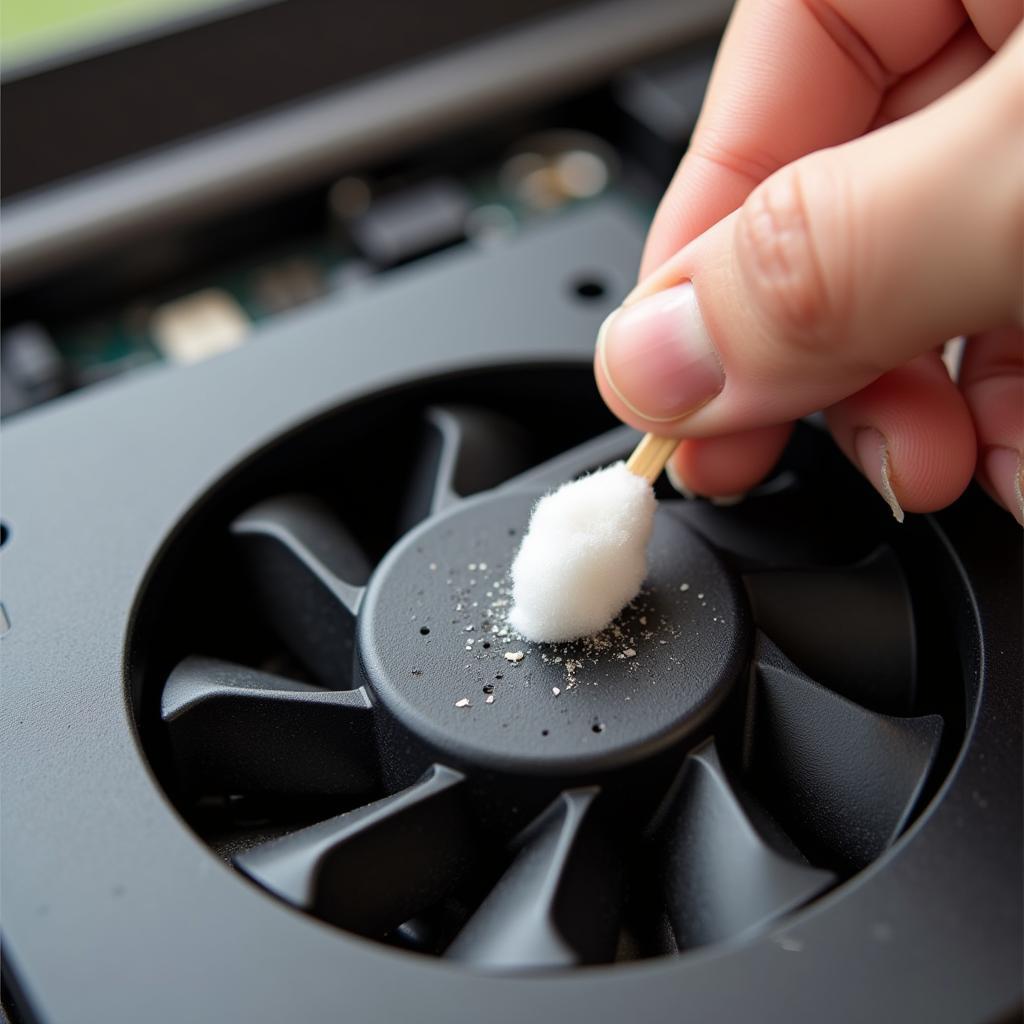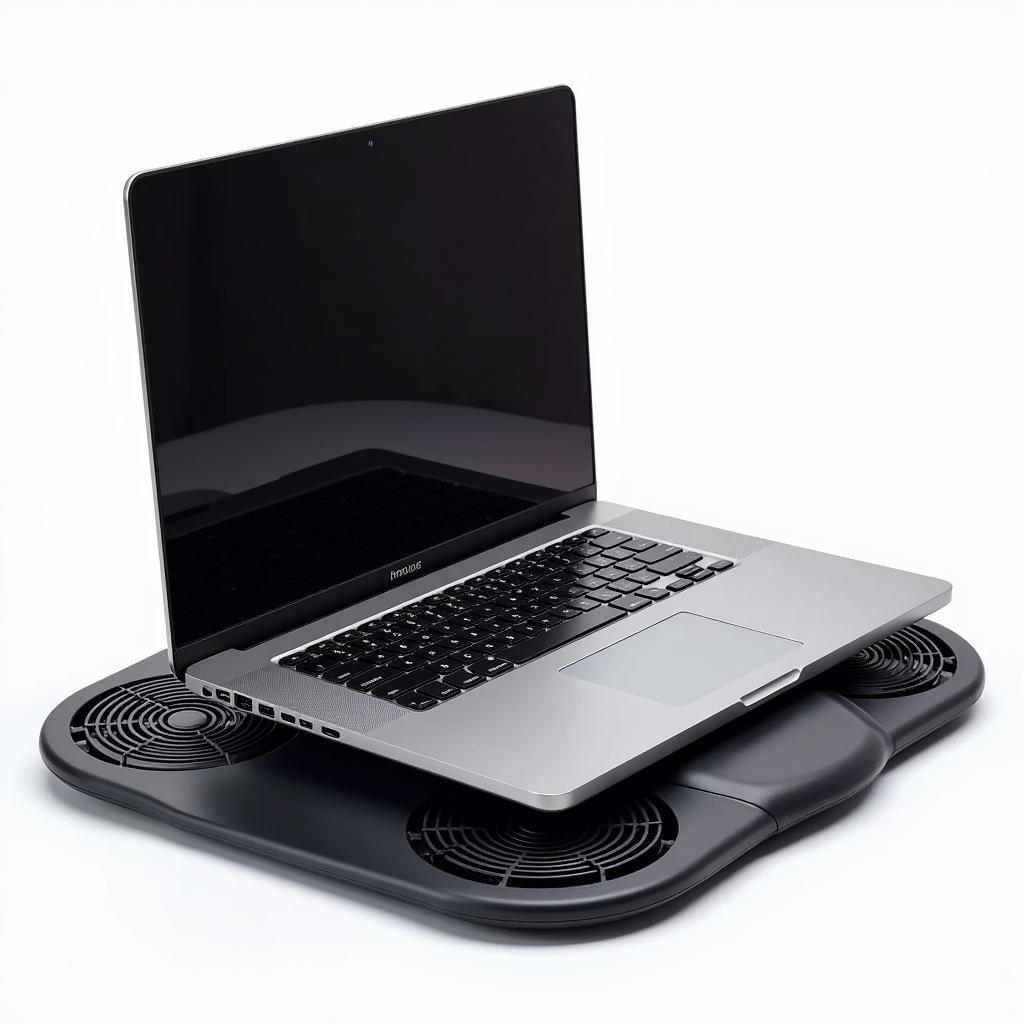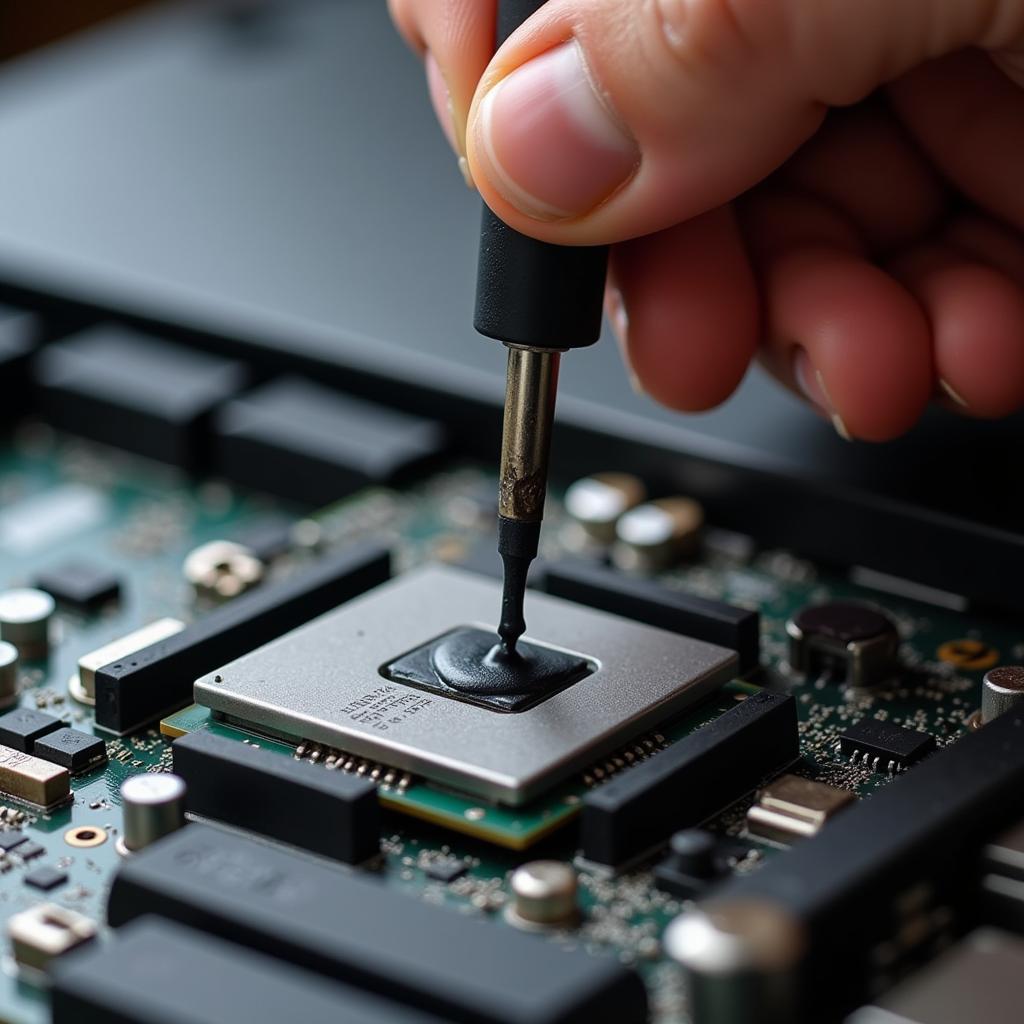Let’s face it, a noisy laptop fan can be incredibly distracting. Whether you’re trying to focus on work, enjoy a movie, or simply browse the web, that constant whirring or whining can really get on your nerves. The good news is that you don’t have to endure the noise – there are a number of things you can do to make your laptop fan less noisy, and even prevent it from happening in the first place.
Understanding Why Your Laptop Fan is So Loud
Before we dive into the solutions, it’s helpful to understand why your laptop fan is making so much noise in the first place. The main function of a laptop fan is to cool down the internal components, preventing overheating and potential damage. When your laptop’s processor and other components work harder, they generate more heat.
Here are the most common culprits behind a noisy laptop fan:
- Dust accumulation: Over time, dust and debris can accumulate in the fan vents and on the fan blades themselves, obstructing airflow and forcing the fan to work harder.
- High CPU usage: Demanding tasks like gaming, video editing, or running multiple programs simultaneously can put a heavy load on your CPU, causing it to heat up and trigger the fan.
- Outdated or malfunctioning drivers: Outdated or corrupted drivers, especially for your graphics card, can lead to inefficient performance and increased heat generation.
- Failing thermal paste: The thermal paste between the CPU and the heatsink helps transfer heat away from the processor. Over time, this paste can dry out or become less effective, leading to higher temperatures and a noisier fan.
 Cleaning Laptop Fan
Cleaning Laptop Fan
Effective Ways to Make Your Laptop Fan Less Noisy
Now that you have a better understanding of what might be causing your laptop fan to sound like a jet engine, let’s explore some effective solutions to silence the noise:
1. Clean Your Laptop Fan
This is the first and most crucial step. Dust build-up is a major contributor to fan noise, so giving your laptop a good cleaning can make a world of difference. Here’s how:
- Power off your laptop and unplug it from the power source.
- Use compressed air: Purchase a can of compressed air from any electronics store. Aim the nozzle at the fan vents and use short bursts of air to dislodge dust. Be careful not to spray too close or for too long, as this could damage the fan.
- Open the laptop (optional): If you’re comfortable with opening your laptop, you can access the fan directly for a more thorough cleaning. Refer to your laptop’s manual or online resources for instructions specific to your model.
- Clean the fan blades: Gently use a cotton swab moistened with isopropyl alcohol to clean the fan blades.
Pro Tip: For optimal performance, clean your laptop fan every 3-6 months, or more frequently if you use your laptop in a dusty environment.
 Laptop Cooling Pad
Laptop Cooling Pad
2. Invest in a Laptop Cooling Pad
A cooling pad is an external device that sits underneath your laptop and helps to dissipate heat. They typically have built-in fans that circulate air around your laptop, reducing the workload on your internal fan.
Choosing the Right Cooling Pad:
- Size: Ensure the cooling pad is compatible with your laptop’s size.
- Number and Size of Fans: More fans generally equate to better cooling.
- Ergonomics: Some cooling pads offer adjustable height settings for a more comfortable typing angle.
3. Optimize Your Laptop’s Settings
Tweaking your laptop’s settings can significantly impact its performance and temperature.
- Adjust Power Options: Choose a balanced power plan instead of high performance. This will optimize energy consumption and reduce unnecessary strain on your laptop.
- Close Unnecessary Programs: Running too many programs simultaneously can overload your CPU. Close any applications you’re not actively using.
- Monitor CPU Temperature: Use a free system monitoring tool to keep an eye on your CPU temperature. If it consistently runs hot, consider taking measures to reduce the workload.
4. Update Your Drivers
Outdated or corrupted drivers can contribute to laptop overheating. Ensure your drivers, especially for your graphics card and chipset, are up to date. You can usually download the latest drivers from the manufacturer’s website.
5. Reapply Thermal Paste (Advanced Users)
If you’re comfortable with opening up your laptop, reapplying thermal paste to your CPU can improve heat transfer and potentially reduce fan noise. However, this is a delicate procedure and should only be attempted by experienced users.
 Applying Thermal Paste
Applying Thermal Paste
When to Seek Professional Help
While the tips above can often resolve laptop fan noise, there are situations where professional help may be necessary:
- Persistent Noise Despite Troubleshooting: If the noise persists even after trying all the solutions, there may be a more serious hardware issue that requires professional attention.
- Grinding or Clicking Sounds: Unusual noises like grinding or clicking, along with increased fan noise, could indicate a failing fan or hard drive.
- Overheating Leading to Shutdowns: If your laptop frequently overheats and shuts down unexpectedly, it’s crucial to have it checked by a technician to prevent permanent damage.
Conclusion
A noisy laptop fan can be a major nuisance, but it doesn’t have to be a permanent fixture in your life. By understanding the causes behind the noise and implementing the solutions outlined in this guide, you can enjoy a quieter and more peaceful computing experience. Remember to prioritize regular cleaning, optimize your laptop’s settings, and seek professional help when needed to keep your laptop running smoothly and quietly for years to come.
FAQs
Q: Is it normal for my laptop fan to run all the time?
A: While it’s normal for your laptop fan to run occasionally, especially during demanding tasks, it shouldn’t be running constantly at full speed. If it is, it could indicate an overheating problem that needs to be addressed.
Q: Can a software update make my laptop fan quieter?
A: Yes, software updates, particularly for your operating system and drivers, can sometimes improve power management and reduce unnecessary fan noise.
Q: How often should I replace my laptop’s thermal paste?
A: It’s generally recommended to replace thermal paste every 2-3 years, or sooner if you notice your laptop running hotter than usual.
Q: Can I use a vacuum cleaner to clean my laptop fan?
A: It’s not recommended to use a vacuum cleaner as the static electricity generated can potentially damage sensitive electronic components. Stick to compressed air for a safer cleaning method.
Q: What are some signs of a failing laptop fan?
A: Aside from excessive noise, other signs of a failing fan include grinding or clicking sounds, inconsistent fan speed, and overheating even under light loads.
Learn More About Laptop Fans
For further information and resources related to laptop fans, you might find these articles helpful:
- Fan tach laptop: Explore different types of laptop fan detachments and learn how to safely remove and replace a laptop fan.
- Acer Aspire 5745 CPU Fan: Find specific guidance and troubleshooting tips for CPU fan issues related to the Acer Aspire 5745 laptop model.
- Fan quạt tản nhiệt laptop dell: Discover insights and solutions for cooling fan problems commonly encountered in Dell laptops.
If you need further assistance with your laptop fan, please don’t hesitate to contact our team at Phone Number: 0903426737, Email: fansbongda@gmail.com. You can also visit us at: Hamlet 9, Quarter 6, Gieng Day Ward, Ha Long City, Quang Ninh, Vietnam. Our customer service team is available 24/7 to assist you.


